The CNIO Friends Contract Program allows us to recruit outstanding young researchers to carry out innovative research projects aimed at understanding, diagnosing, and treating cancer.
Thank you for your support, together we will be able to stop cancer! We present here some of the CNIO Friends researchers:

Alejandro Da Silva Epithelial Carcinogenesis Group (CNIO)
CNIO Friends Contract - Fundación Domingo Martínez
“My research aims to uncover the key molecular mechanisms that drive the aggressiveness and metastatic potential of bladder cancer, with a particular focus on the role of the tumor microenvironment and its potential therapeutic relevance.” To this end, Alejandro studies how tumor cells interact with the surrounding cellular environment, analyzing the genes and proteins activated during this process.
CNIO Friends Contract - Fundación Domingo Martínez
“My research aims to uncover the key molecular mechanisms that drive the aggressiveness and metastatic potential of bladder cancer, with a particular focus on the role of the tumor microenvironment and its potential therapeutic relevance.” To this end, Alejandro studies how tumor cells interact with the surrounding cellular environment, analyzing the genes and proteins activated during this process.

Juan Carlos López Gil Experimental Oncology Group (CNIO)
“If we can detect pancreatic cancer in its earliest stages, the survival rate could increase from 10 to 50%. That is why I am studying the cells that give rise to the disease and how this type of tumour develops”. Juan Carlos wants to decipher the molecular mechanisms that give rise to pancreatic cancer stem cells, which are key players in the origin and evolution of this tumour and in drug resistance. The aim is to develop preventive approaches or therapies that eliminate these cells and improve existing treatments.
“If we can detect pancreatic cancer in its earliest stages, the survival rate could increase from 10 to 50%. That is why I am studying the cells that give rise to the disease and how this type of tumour develops”. Juan Carlos wants to decipher the molecular mechanisms that give rise to pancreatic cancer stem cells, which are key players in the origin and evolution of this tumour and in drug resistance. The aim is to develop preventive approaches or therapies that eliminate these cells and improve existing treatments.

Leticia Cuarental Brain Metastasis Group
"My research focuses on understanding how certain "molecular keys" work in cancer cells that invade the brain. The main goal is to discover how these molecular keys and epigenetic programs enable cancer cells to survive and grow in the brain." Leticia aims to understand these mechanisms to help identify more specific and effective treatments for patients with brain metastases, thereby improving their therapeutic options.
"My research focuses on understanding how certain "molecular keys" work in cancer cells that invade the brain. The main goal is to discover how these molecular keys and epigenetic programs enable cancer cells to survive and grow in the brain." Leticia aims to understand these mechanisms to help identify more specific and effective treatments for patients with brain metastases, thereby improving their therapeutic options.

Seokjin Ham Computational Cancer Genomics Group
"I work to advance personalized medicine using artificial intelligence (AI) and multi-omics data. My focus is on identifying changes that disrupt key cellular processes and finding ways to restore the normal function of the p53 protein, crucial for suppressing cancer, or targeting the harmful effects of its mutated form." Seokjin seeks to deepen the understanding of cancer biology and the development of personalized therapeutic treatments tailored to each patient.
"I work to advance personalized medicine using artificial intelligence (AI) and multi-omics data. My focus is on identifying changes that disrupt key cellular processes and finding ways to restore the normal function of the p53 protein, crucial for suppressing cancer, or targeting the harmful effects of its mutated form." Seokjin seeks to deepen the understanding of cancer biology and the development of personalized therapeutic treatments tailored to each patient.

Nuria Moreno Marín Clinical Breast Cancer Research Unit
"The goal of my work is to support the development of LUMICare, a cutting-edge personalized medicine platform aimed at optimizing and improving care for breast or ovarian cancer patients, among others. The project focuses on adapting dietary plans to target specific metabolic pathways, making treatments more effective and improving the quality of life for these patients." Nuria’s research aims to advance precision oncology care by identifying and testing new biological biomarkers that can predict how a patient’s disease will progress.
"The goal of my work is to support the development of LUMICare, a cutting-edge personalized medicine platform aimed at optimizing and improving care for breast or ovarian cancer patients, among others. The project focuses on adapting dietary plans to target specific metabolic pathways, making treatments more effective and improving the quality of life for these patients." Nuria’s research aims to advance precision oncology care by identifying and testing new biological biomarkers that can predict how a patient’s disease will progress.

Sonia Burgaz García-Oteyza Telomeres and Telomerase Group – Fundación Humanismo y Ciencia
"My research focuses on a novel therapeutic approach using telomerase for short telomeres and, potentially, healing idiopathic pulmonary fibrosis scarring, a disease associated with aging and currently without a cure." Sonia investigates the application of gene therapy to combat telomere shortening, slow down cellular aging, and delay, or even reverse, the progression of pulmonary fibrosis.
"My research focuses on a novel therapeutic approach using telomerase for short telomeres and, potentially, healing idiopathic pulmonary fibrosis scarring, a disease associated with aging and currently without a cure." Sonia investigates the application of gene therapy to combat telomere shortening, slow down cellular aging, and delay, or even reverse, the progression of pulmonary fibrosis.

Juan Ignacio Jiménez-Loygorri Organ Interaction in Metabolic Diseases Group
"My research focuses on autophagy, an intracellular cleaning process responsible for removing damaged or unnecessary cellular components to recycle their nutrients. It has been shown that cancer cells exploit this process to proliferate rapidly; however, when autophagy slows down in healthy cells, it can lead to the gradual deterioration of organs." Juan Ignacio aims to understand the specific molecular mechanisms that explain this dual role of autophagy.
"My research focuses on autophagy, an intracellular cleaning process responsible for removing damaged or unnecessary cellular components to recycle their nutrients. It has been shown that cancer cells exploit this process to proliferate rapidly; however, when autophagy slows down in healthy cells, it can lead to the gradual deterioration of organs." Juan Ignacio aims to understand the specific molecular mechanisms that explain this dual role of autophagy.

Macarena Pozo Transformation and Metastasis Group (CNIO)
“My research is understanding how breast cancer progression and aggressiveness is impacted by menopause, as well as the role of Rank protein. The purpose is to find personalized treatments and to identify breast cancer patients who could benefit from the treatment with Rank inhibitors, currently used for the treatment of osteoporosis”. Macarena explores the cellular and molecular mechanisms underlying this protein taking into consideration the menopause status to develop new therapies which allows to increase the lifespan of these patients.
“My research is understanding how breast cancer progression and aggressiveness is impacted by menopause, as well as the role of Rank protein. The purpose is to find personalized treatments and to identify breast cancer patients who could benefit from the treatment with Rank inhibitors, currently used for the treatment of osteoporosis”. Macarena explores the cellular and molecular mechanisms underlying this protein taking into consideration the menopause status to develop new therapies which allows to increase the lifespan of these patients.

Héctor Díaz Topology and DNA breaks Group
“I research about the mechanisms of action of topoisomerases, essential enzymes in genome maintenance, and target of common chemotherapeutic treatments. Moreover, they also cause DNA breaks that may compromise chromosomal stability, inducing tumor processes.” Héctor studies the molecular mechanisms that regulate topoisomerases activity and seeks to identify novel factors involved in the repair of topoisomerase induced DNA damage. Altogether, will open the door to the design of new targeted therapeutic strategies.
“I research about the mechanisms of action of topoisomerases, essential enzymes in genome maintenance, and target of common chemotherapeutic treatments. Moreover, they also cause DNA breaks that may compromise chromosomal stability, inducing tumor processes.” Héctor studies the molecular mechanisms that regulate topoisomerases activity and seeks to identify novel factors involved in the repair of topoisomerase induced DNA damage. Altogether, will open the door to the design of new targeted therapeutic strategies.
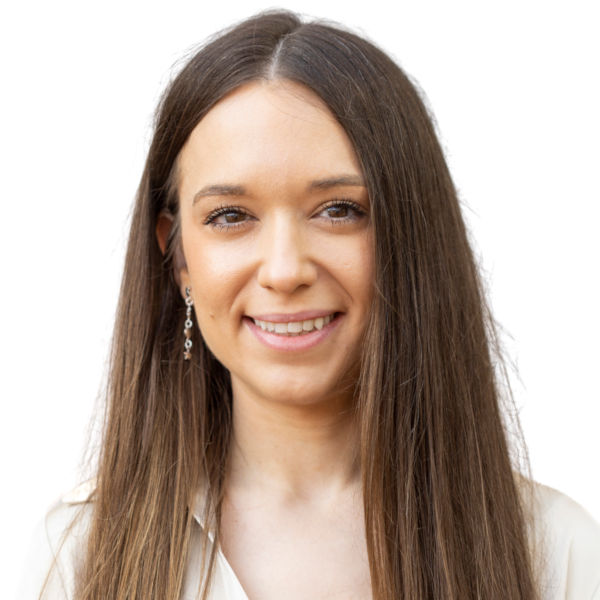
Elena Jiménez-Ortega Genomic Integrity and Structural Biology Group (CNIO)
“I study the three-dimensional structure of proteins involved in the replication and maintenance of the mitochondrial genome”. Recently, an association between mitochondrial DNA defects and various types of cancer has been discovered, although the mechanisms have not been investigated to date. Elena wants to understand the impact of mutations on disease and develop new therapeutic approaches by studying the proteins involved.
“I study the three-dimensional structure of proteins involved in the replication and maintenance of the mitochondrial genome”. Recently, an association between mitochondrial DNA defects and various types of cancer has been discovered, although the mechanisms have not been investigated to date. Elena wants to understand the impact of mutations on disease and develop new therapeutic approaches by studying the proteins involved.

María Martínez Group of Macromolecular Complexes in the Response to DNA Damage (CNIO)
"I investigate amino acid transporters, a group of proteins responsible for the movement of amino acids through biological membranes." María is working to understand their structure and function, since altered transport of amino acids can cause tumors, metabolic diseases or neurological disorders. The objective is to move towards obtaining specific drugs directed at these transporters.
"I investigate amino acid transporters, a group of proteins responsible for the movement of amino acids through biological membranes." María is working to understand their structure and function, since altered transport of amino acids can cause tumors, metabolic diseases or neurological disorders. The objective is to move towards obtaining specific drugs directed at these transporters.
Previous ‘CNIO Friends’ contracts
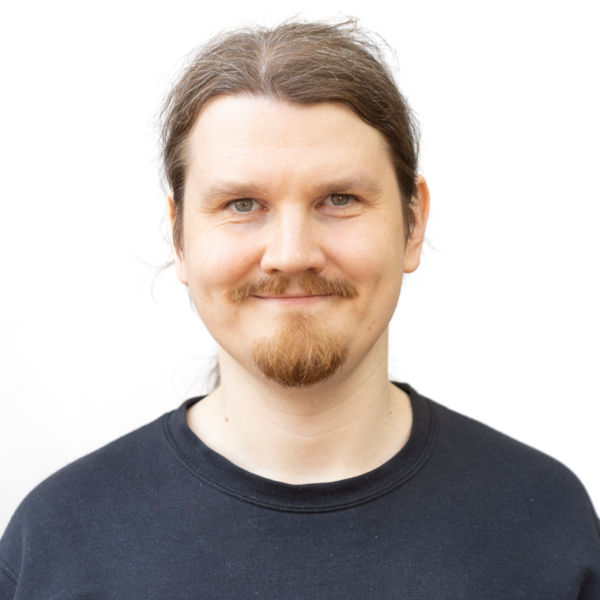
Mikhail Chesnokov Epithelial Carcinogenesis Group (CNIO)
"I study the molecular mechanisms involved in the development of pancreatitis and pancreatic cancer. I investigate the role of NR5A2, a protein that regulates cell differentiation in the pancreas, intestine and liver, and protects against inflammatory phenomena." Mikhail aims to understand how the manipulation of NR5A2 and other molecules that cooperate with it contribute to prevent/improve pancreatitis and reduce the risk of pancreatic cancer.
"I study the molecular mechanisms involved in the development of pancreatitis and pancreatic cancer. I investigate the role of NR5A2, a protein that regulates cell differentiation in the pancreas, intestine and liver, and protects against inflammatory phenomena." Mikhail aims to understand how the manipulation of NR5A2 and other molecules that cooperate with it contribute to prevent/improve pancreatitis and reduce the risk of pancreatic cancer.
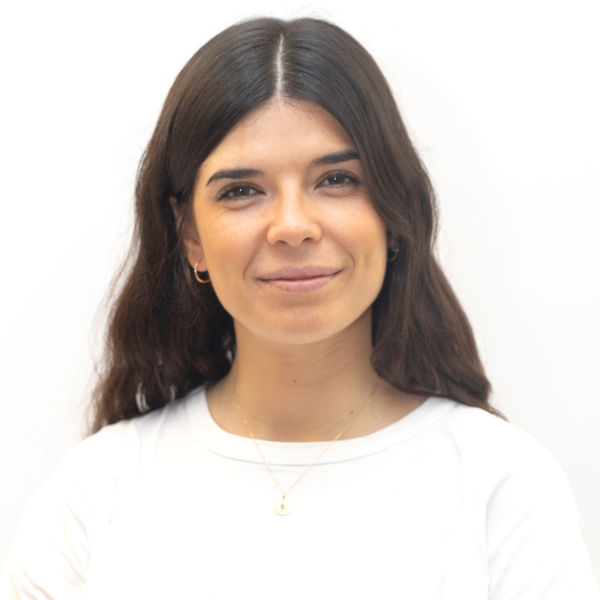
Isabel Espejo CNIO Friends Contract – La Roche-Posay
Telomeres and Telomerase Group (CNIO) – Humanism and Science Foundation
“I investigate telomeres which are structures at the ends of chromosomes that are essential for DNA protection and genomic stability. Their alterations affect important biological processes, from aging to cancer”. Isabel seeks to understand the molecular mechanisms that control the state of telomeres, which is key knowledge to develop new therapeutic strategies. She will also use cutting-edge technology to study the effects of chemotherapy and radiotherapy on telomere length.
Telomeres and Telomerase Group (CNIO) – Humanism and Science Foundation
“I investigate telomeres which are structures at the ends of chromosomes that are essential for DNA protection and genomic stability. Their alterations affect important biological processes, from aging to cancer”. Isabel seeks to understand the molecular mechanisms that control the state of telomeres, which is key knowledge to develop new therapeutic strategies. She will also use cutting-edge technology to study the effects of chemotherapy and radiotherapy on telomere length.

Raquel González Novo-Martin Cancer Immunity Group
"I investigate how cells in the tumor microenvironment help the tumor evade the immune system." Raquel aims to uncover the mechanisms of immune evasion in small-cell lung cancer, particularly in the interactions between cancer-associated fibroblasts (CAFs) and tumor-associated macrophages (TAMs), which promote the tumor process. Her ultimate goal is to identify innovative therapeutic strategies that strengthen the immune response and improve the prognosis for patients with this highly aggressive cancer.
"I investigate how cells in the tumor microenvironment help the tumor evade the immune system." Raquel aims to uncover the mechanisms of immune evasion in small-cell lung cancer, particularly in the interactions between cancer-associated fibroblasts (CAFs) and tumor-associated macrophages (TAMs), which promote the tumor process. Her ultimate goal is to identify innovative therapeutic strategies that strengthen the immune response and improve the prognosis for patients with this highly aggressive cancer.
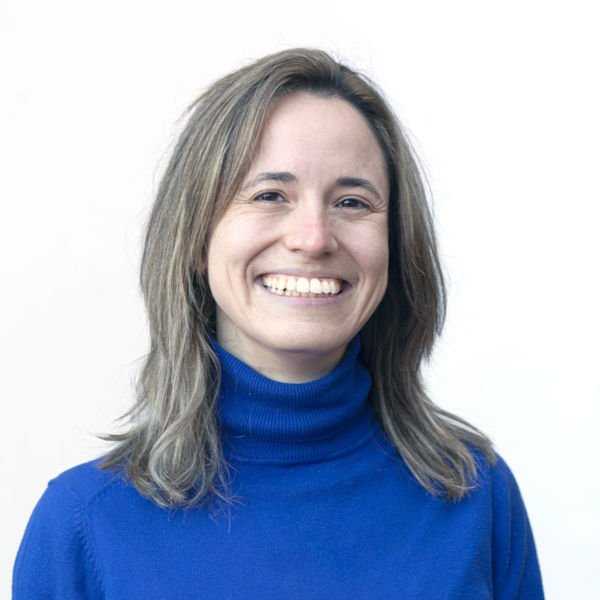
Yurena Vivas CNIO Friends Contract – Fundación Domingo Martínez
Metabolism and Cellular Signaling Group (CNIO)
“My project will explore whether the microenvironment determines cell malignant transformation beyond the effect of mutations or in combination with them, in the context of pancreatic carcinoma”. Yurena aims to understand the possible contribution of non-autonomous factors to pancreatic cancer progression.
Metabolism and Cellular Signaling Group (CNIO)
“My project will explore whether the microenvironment determines cell malignant transformation beyond the effect of mutations or in combination with them, in the context of pancreatic carcinoma”. Yurena aims to understand the possible contribution of non-autonomous factors to pancreatic cancer progression.
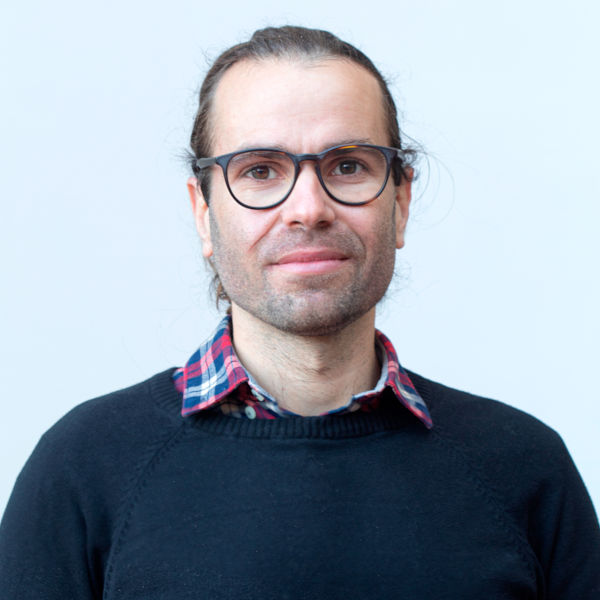
Lluís Cordón Brain Metastasis Group (CNIO)
“Brain metastasis is a highly relevant clinical problem without effective therapies. My goal is to help understand how the tumor reprograms certain brain cells (astrocytes) for its own benefit.” Lluis’s project will study the development of metastasis with the aim to prevent the advancement of the disease and establish effective strategies to treat it.
“Brain metastasis is a highly relevant clinical problem without effective therapies. My goal is to help understand how the tumor reprograms certain brain cells (astrocytes) for its own benefit.” Lluis’s project will study the development of metastasis with the aim to prevent the advancement of the disease and establish effective strategies to treat it.
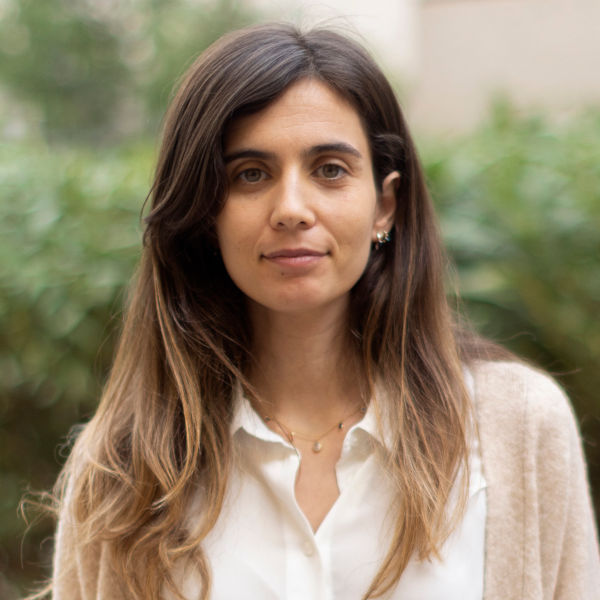
Carolina Villarroya Experimental Oncology Group (CNIO)
"I´m investigating the development of new therapies against pancreatic adenocarcinoma and non-small cell lung cancer. Both tumors are related to mutations in the KRAS gene, which cause most of these types of cancer." Carolina wants to discover the mechanisms of resistance to current therapies and to identify therapeutic targets whose combined inhibition with the KRAS pathway achieves complete tumor regression.
"I´m investigating the development of new therapies against pancreatic adenocarcinoma and non-small cell lung cancer. Both tumors are related to mutations in the KRAS gene, which cause most of these types of cancer." Carolina wants to discover the mechanisms of resistance to current therapies and to identify therapeutic targets whose combined inhibition with the KRAS pathway achieves complete tumor regression.
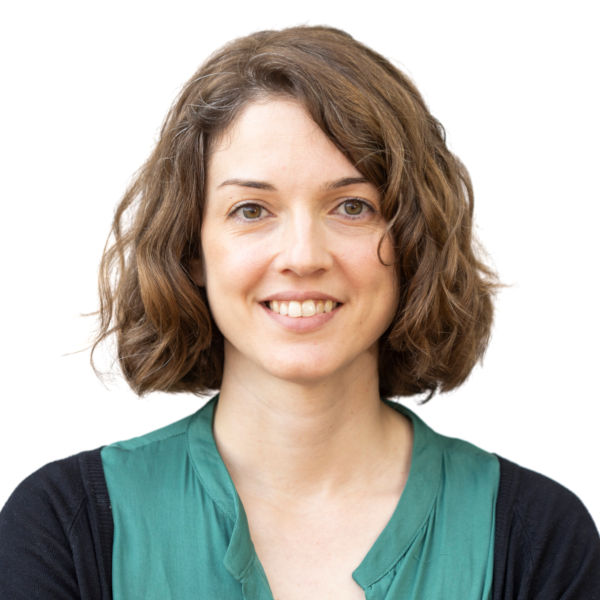
Clara Reglero Hereditary Endocrine Cancer Group (CNIO)
“The main objective of my project is the identification of new molecular mechanisms in cases with a predisposition to cancer where the cause is unknown.” Clara works on the validation of new genetic targets detected through sequencing techniques and computational analysis, to improve the diagnosis and treatment of patients with hereditary cancer.
“The main objective of my project is the identification of new molecular mechanisms in cases with a predisposition to cancer where the cause is unknown.” Clara works on the validation of new genetic targets detected through sequencing techniques and computational analysis, to improve the diagnosis and treatment of patients with hereditary cancer.
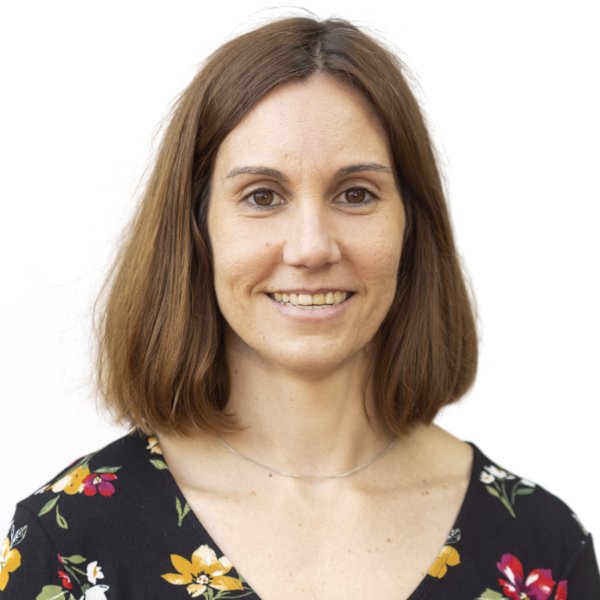
Bárbara Hernando Computational Oncology Group (CNIO)
“My main goal is to use genome-wide biomarkers to target chromosomal instability (CIN) – a hallmark of cancer linked to metastasis and therefore poor prognosis.” Bárbara will develop new models to accurately characterise the biological causes of each type of CIN, and to develop novel therapeutic targeting strategies for more personalised treatment of the deadliest cancers.
“My main goal is to use genome-wide biomarkers to target chromosomal instability (CIN) – a hallmark of cancer linked to metastasis and therefore poor prognosis.” Bárbara will develop new models to accurately characterise the biological causes of each type of CIN, and to develop novel therapeutic targeting strategies for more personalised treatment of the deadliest cancers.
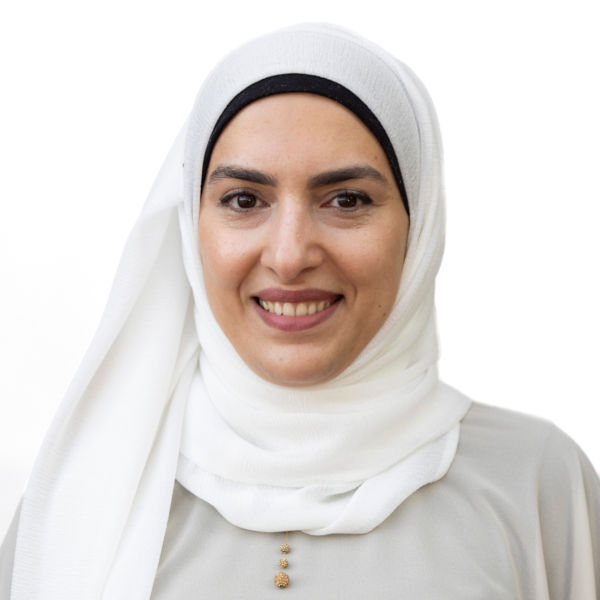
Rayan Naser Growth Factors, Nutrients and Cancer Group (CNIO)
My goal is to elucidate the structure of the URI protein complex to clarify its behavior and to see how its alteration induces cancer.” Rayan will use state-of-the-art protein engineering, biochemistry and cryo-electron microscopy, to lay the structural foundations of the role of URI in cancer and propose new therapeutic approaches based on altering this protein complex.
My goal is to elucidate the structure of the URI protein complex to clarify its behavior and to see how its alteration induces cancer.” Rayan will use state-of-the-art protein engineering, biochemistry and cryo-electron microscopy, to lay the structural foundations of the role of URI in cancer and propose new therapeutic approaches based on altering this protein complex.
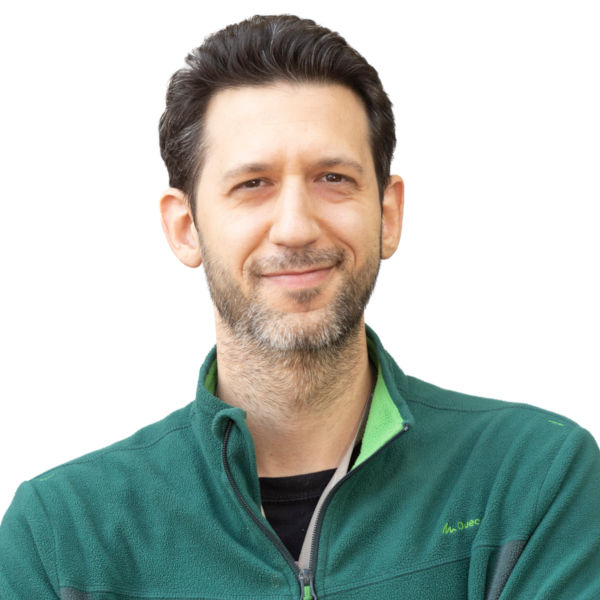
Ivó Hernández Genomic Instability Group (CNIO)
"My research is focused on understanding the function of the key regulator of the TFEB protein, relevant in cellular cleansing processes related to aging and cancer." Ivó´s objective is to explore the molecular mechanisms that regulate this protein in order to find new chemical and genetic strategies to enhance its activity in patients and prolong life expectancy in a healthy way.
"My research is focused on understanding the function of the key regulator of the TFEB protein, relevant in cellular cleansing processes related to aging and cancer." Ivó´s objective is to explore the molecular mechanisms that regulate this protein in order to find new chemical and genetic strategies to enhance its activity in patients and prolong life expectancy in a healthy way.
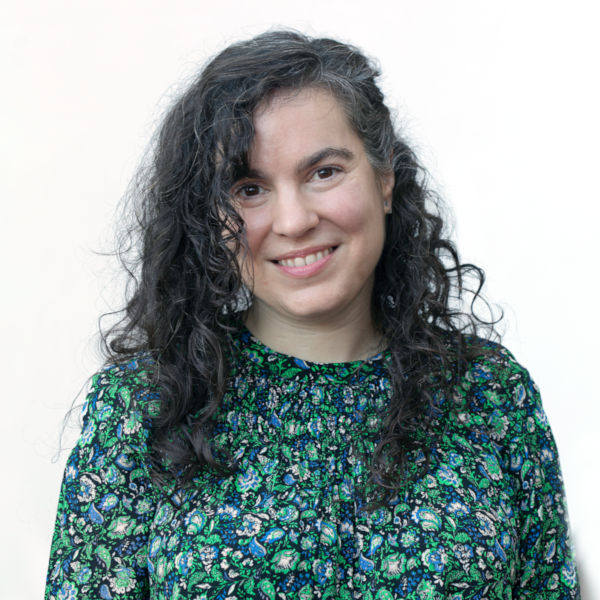
Ana María Roncero Breast Cancer Clinical Research Unit (CNIO)
“I do research with patient derived tumor organoids from metastatic breast cancer patients”. Ana’s objective is to find better targeted and personalized therapies for patients with advanced Triple Negative (TNNBC) and hormone positive breast tumors.
“I do research with patient derived tumor organoids from metastatic breast cancer patients”. Ana’s objective is to find better targeted and personalized therapies for patients with advanced Triple Negative (TNNBC) and hormone positive breast tumors.
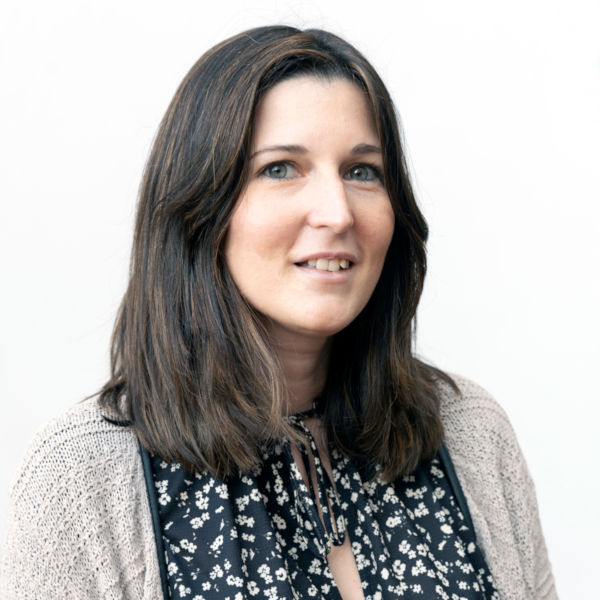
Laura Nogues Microenvironment and Metastasis Group (CNIO)
The main goal of my research is to find new targets to block melanoma metastasis and prevent relapse of therapy resistant tumors, the main causes of death of melanoma patients. In particular, my project aims to analyze the use of the NGFR small molecule inhibitor (THX-B) as anti-metastatic therapy in melanoma, alone or in combination with current immunotherapies, and the mechanisms underlying these events.
The main goal of my research is to find new targets to block melanoma metastasis and prevent relapse of therapy resistant tumors, the main causes of death of melanoma patients. In particular, my project aims to analyze the use of the NGFR small molecule inhibitor (THX-B) as anti-metastatic therapy in melanoma, alone or in combination with current immunotherapies, and the mechanisms underlying these events.
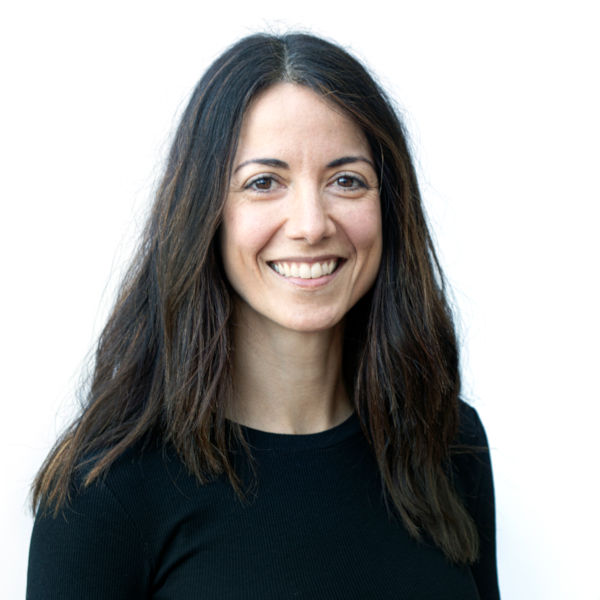
Diana Vara Cell Division and Cancer Group (CNIO)
I explore how MASTL-PP2A/B55, a pathway involved in mitosis, regulates metabolism. Given that metabolic changes have implications in cancer but also in other western diseases, these analyses might provide new therapeutic targets to prevent and to treat these illness, improving patients’ lives.
I explore how MASTL-PP2A/B55, a pathway involved in mitosis, regulates metabolism. Given that metabolic changes have implications in cancer but also in other western diseases, these analyses might provide new therapeutic targets to prevent and to treat these illness, improving patients’ lives.
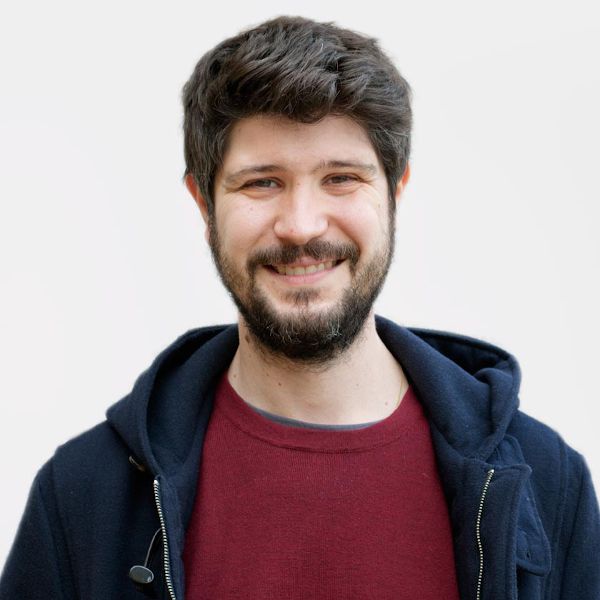
Sergio Muñoz DNA Replication Group (CNIO)
“I study how cells regulate the initiation of DNA replication to ensure the correct inheritance of genetic material”. Sergio aims to understand the mechanisms that prevent improper reduplication of genomic regions leading to genetic instability, a phenomenon that usually fuels different type of cancers.
“I study how cells regulate the initiation of DNA replication to ensure the correct inheritance of genetic material”. Sergio aims to understand the mechanisms that prevent improper reduplication of genomic regions leading to genetic instability, a phenomenon that usually fuels different type of cancers.
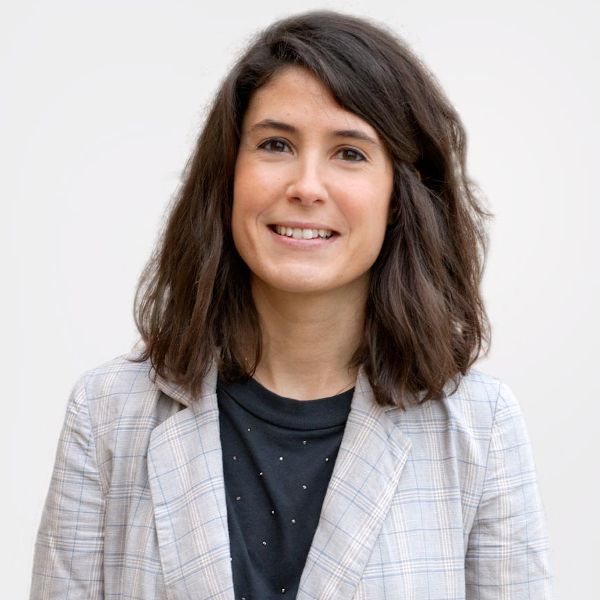
Sofía Cabezudo Macromolecular Complexes in DNA Damage Response Group (CNIO)
“I study the structural and molecular bases for the regulation of the mTOR signalling pathway by molecular chaperones.” Sofía’s project explores new potential strategies to target the mTOR pathway against cancer progression.
“I study the structural and molecular bases for the regulation of the mTOR signalling pathway by molecular chaperones.” Sofía’s project explores new potential strategies to target the mTOR pathway against cancer progression.
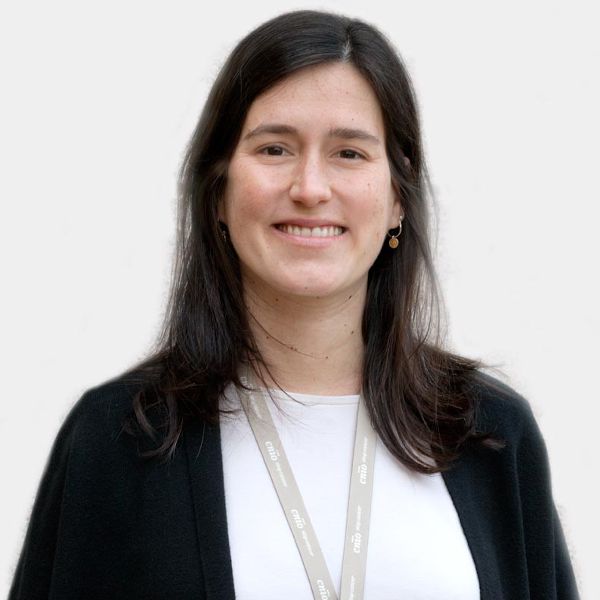
María José Andreu Chromosome Dynamics Group (CNIO)
“I study the contribution of STAG2 mutations to aggressive Ewing Sarcoma (EWS), which is the second most frequent type of bone cancer in children.” Maria’s goal is to understand how STAG2 mutations promote the metastatic phenotype to likelly improve the clinical management and the outcome of EWS patients with metastatic disease.
“I study the contribution of STAG2 mutations to aggressive Ewing Sarcoma (EWS), which is the second most frequent type of bone cancer in children.” Maria’s goal is to understand how STAG2 mutations promote the metastatic phenotype to likelly improve the clinical management and the outcome of EWS patients with metastatic disease.
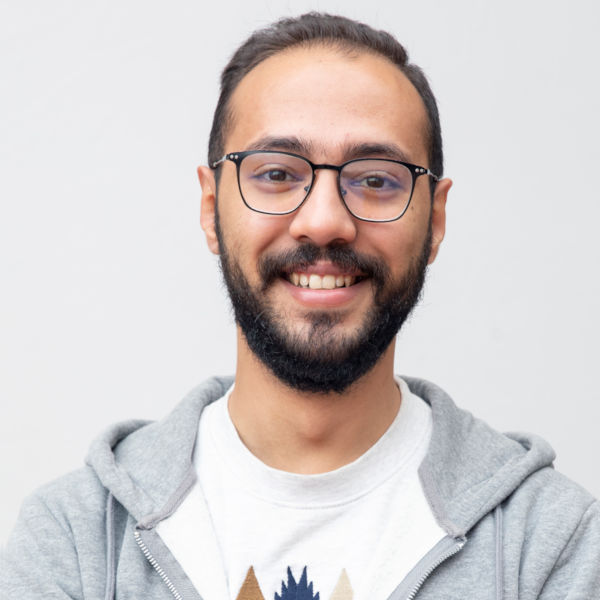
Moustafa Shehata CNIO Friends Contract - Carmen Gloria Bonet
Computational Cancer Genomics Group (CNIO)
"I study how the RET protein works, as it plays an important role in neuroblastoma, a type of fatal childhood cancer (15%) that affects the cells of the adrenal gland and the peripheral nervous system." Moustafa investigates personalised therapeutic strategies in the treatment of this aggressive tumor.
Computational Cancer Genomics Group (CNIO)
"I study how the RET protein works, as it plays an important role in neuroblastoma, a type of fatal childhood cancer (15%) that affects the cells of the adrenal gland and the peripheral nervous system." Moustafa investigates personalised therapeutic strategies in the treatment of this aggressive tumor.
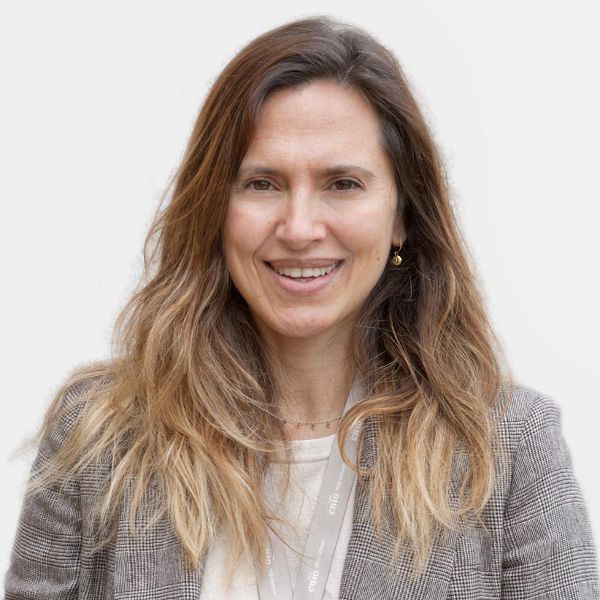
Magdalena Leal CNIO Friends Contract – Fundación Humanismo y Ciencia
Melanoma Group (CNIO)
“I study how melanoma acts at a distance before metastasis and evades the immune system in different anatomical structures.” Magdalena’s research has a particular emphasis on the role of MIDKINE in different cell populations of the bone marrow.
Melanoma Group (CNIO)
“I study how melanoma acts at a distance before metastasis and evades the immune system in different anatomical structures.” Magdalena’s research has a particular emphasis on the role of MIDKINE in different cell populations of the bone marrow.
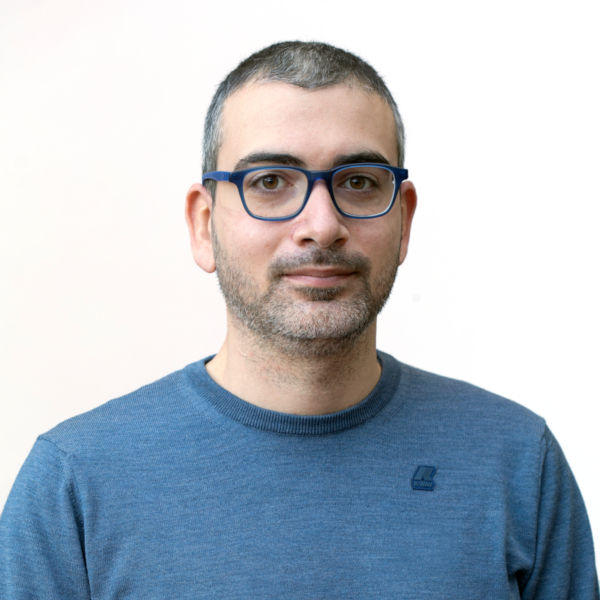
Federico Virga Experimental Oncology Group
“My project will centre on how to increase the anti-tumoral response of the immune system in the context of pancreatic and lung tumours induced by KRAS oncogenes”. The research of Federico aims to improve the treatment of these tumours, which are among the most aggressive and lethal cancer types.
“My project will centre on how to increase the anti-tumoral response of the immune system in the context of pancreatic and lung tumours induced by KRAS oncogenes”. The research of Federico aims to improve the treatment of these tumours, which are among the most aggressive and lethal cancer types.

Albert Harguindey CNIO Friends Contract – Fondation Franz Weber
Growth Factors, Nutrients and Cancer Group (CNIO)
“I work in elucidating the 3D structure and providing an atomic model of the Unconventional Prefoldin RPB5 interactor-like (URI) protein complex”. Albert is looking for the structural basis for the role of URI in cancer and aims to propose novel therapeutic strategies by disrupting the complex interactions.
Growth Factors, Nutrients and Cancer Group (CNIO)
“I work in elucidating the 3D structure and providing an atomic model of the Unconventional Prefoldin RPB5 interactor-like (URI) protein complex”. Albert is looking for the structural basis for the role of URI in cancer and aims to propose novel therapeutic strategies by disrupting the complex interactions.
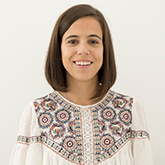
Elena Fueyo CNIO Friends Contract – María Oliva
Genomic Instability and Structural Biology Group (CNIO)
“I investigate the molecular ‘disguises’ and ‘breaks’ that allow tumor cells to avoid an attack from the immune system.” Understanding the biology of these mechanisms is essential for the development of effective immunotherapies against cancer.
Genomic Instability and Structural Biology Group (CNIO)
“I investigate the molecular ‘disguises’ and ‘breaks’ that allow tumor cells to avoid an attack from the immune system.” Understanding the biology of these mechanisms is essential for the development of effective immunotherapies against cancer.
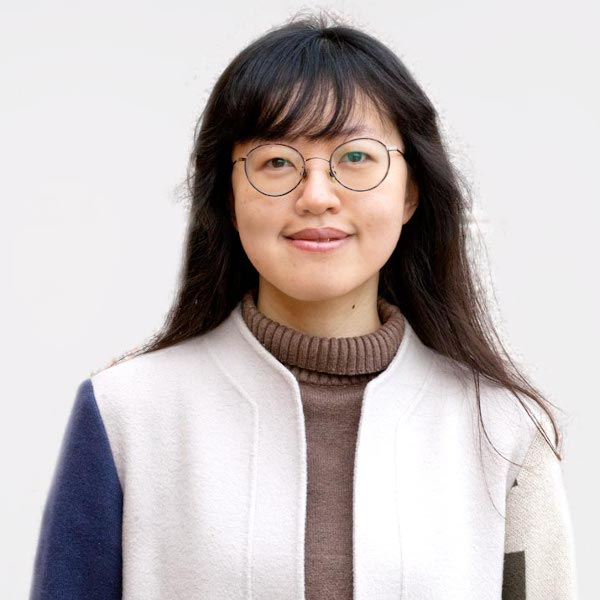
Eunjeong Kim Growth Factors, Nutrients and Cancer Group (CNIO)
"I explore the novel mechanism between liver cirrhosis and hepatocellular carcinoma.” The aim of Kim’s project is to provide a new treatment option for liver cancer patients.
"I explore the novel mechanism between liver cirrhosis and hepatocellular carcinoma.” The aim of Kim’s project is to provide a new treatment option for liver cancer patients.
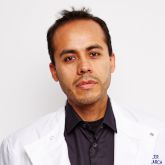
Rubén Martínez Group of Kinases, Protein Phosphorylation and Cancer (CNIO)
"I investigate how RET oncogene activity is altered in certain cancer types, such as lung and breast cancer, as well as neuroblastoma." Rubén aims to find compounds capable of inhibiting this gene that could provide more effective treatments against these types of tumours.
"I investigate how RET oncogene activity is altered in certain cancer types, such as lung and breast cancer, as well as neuroblastoma." Rubén aims to find compounds capable of inhibiting this gene that could provide more effective treatments against these types of tumours.
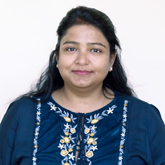
Sarita Saraswati Telomeres and Telomerase Group (CNIO)
"I study the role of telomere dysfunction in the origin of kidney and liver fibrosis, which in its advanced stages may lead to cancer in these organs." Sarita’s goal is to find new therapies for the treatment of these diseases.
"I study the role of telomere dysfunction in the origin of kidney and liver fibrosis, which in its advanced stages may lead to cancer in these organs." Sarita’s goal is to find new therapies for the treatment of these diseases.
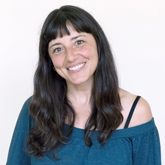
María Moreno Genomic Integrity and Structural Biology Group (CNIO)
"I study the three-dimensional structure of CAD, a protein that is highly expressed in cancer." María analyses how genetic mutations affect the structure of this protein, to develop new therapies for treatment.
"I study the three-dimensional structure of CAD, a protein that is highly expressed in cancer." María analyses how genetic mutations affect the structure of this protein, to develop new therapies for treatment.
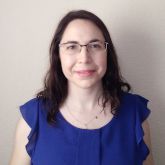
Rebeca Jimeno CNIO Friends Contract - Eva Plaza
Breast Cancer Clinical Research Unit (CNIO)
"I investigate the potential of immunology as a strategy against breast cancer, specifically in Triple Negative tumors (TNBC) for a better understanding of its evolution”. Rebeca’s research aims to identify treatments targeted to the tumor with fewer side effects than current therapies.
Breast Cancer Clinical Research Unit (CNIO)
"I investigate the potential of immunology as a strategy against breast cancer, specifically in Triple Negative tumors (TNBC) for a better understanding of its evolution”. Rebeca’s research aims to identify treatments targeted to the tumor with fewer side effects than current therapies.
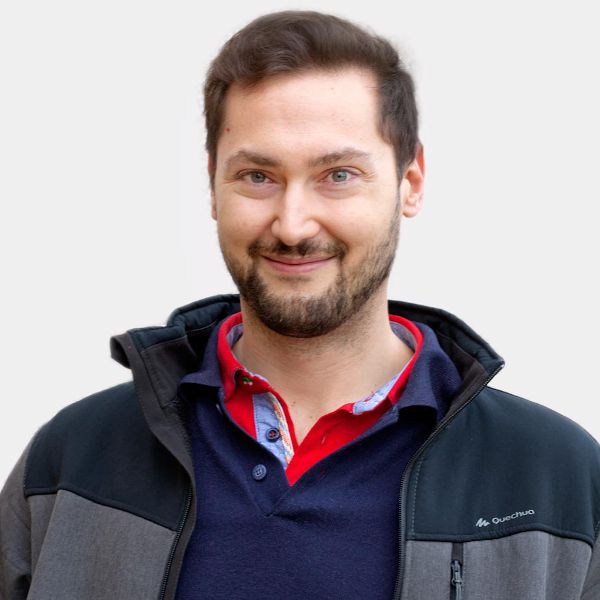
Giussepe Bosso Telomeres and Telomerase Group (CNIO)
"I study the role of post-translational modifications of shelterin proteins in telomere maintenance." Giuseppe´s goal is to identify novel pathways and kinases whose activity is required for chromosome end protection.
"I study the role of post-translational modifications of shelterin proteins in telomere maintenance." Giuseppe´s goal is to identify novel pathways and kinases whose activity is required for chromosome end protection.
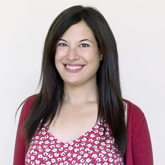
Neibla Priego Brain Metastasis Group (CNIO)
"I explore therapeutic and diagnostic options for brain metastasis." These metastases arise in 10-40% of all cancer cases originating from different organs. Neibla is the first author of a study that describes how a compound called silibinin can reduce them.
"I explore therapeutic and diagnostic options for brain metastasis." These metastases arise in 10-40% of all cancer cases originating from different organs. Neibla is the first author of a study that describes how a compound called silibinin can reduce them.
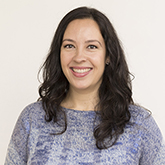
Carolina Maestre Cell Division and Cancer Group (CNIO)
“We have identified a molecule involved in the survival of tumour cells when they divide. Our working hypothesis is that if we can manage to inhibit the action of those molecules, it should keep the tumour from spreading.” Carolina is looking closely at what could prove to be a new target for pharmacological-based cancer treatments.
“We have identified a molecule involved in the survival of tumour cells when they divide. Our working hypothesis is that if we can manage to inhibit the action of those molecules, it should keep the tumour from spreading.” Carolina is looking closely at what could prove to be a new target for pharmacological-based cancer treatments.
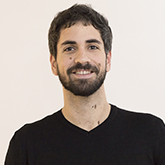
Miguel Jiménez Alcázar CNIO Friends Contract – Fundación Juegaterapia
Seve-Ballesteros Foundation Brain Tumors Group (CNIO)
“I have undertaken a study focusing on gliomas, cerebral tumours common in children and adolescents.” Miguel’s goal is to see that the results are transferred to the clinical sphere, where they can contribute to increasing patients’ survival rates and improving the quality of life.
Seve-Ballesteros Foundation Brain Tumors Group (CNIO)
“I have undertaken a study focusing on gliomas, cerebral tumours common in children and adolescents.” Miguel’s goal is to see that the results are transferred to the clinical sphere, where they can contribute to increasing patients’ survival rates and improving the quality of life.
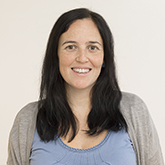
Irene Felipe CNIO Friends Contract – Fundación Juegaterapia
Epithelial Carcinogenesis Group (CNIO)
“I study neuroblastoma, one of the most frequent tumors in children.” Irene hopes that the molecular findings and the translational aspects of the project, such as the identification of therapeutic strategies and the development of biomarkers, have their application in clinic in the near future.
Epithelial Carcinogenesis Group (CNIO)
“I study neuroblastoma, one of the most frequent tumors in children.” Irene hopes that the molecular findings and the translational aspects of the project, such as the identification of therapeutic strategies and the development of biomarkers, have their application in clinic in the near future.

Sebastián Thompson Growth Factors, Nutrients and Cancer Group (CNIO)
“I am examining the process by which nanoparticles can be used to transport medication to a specific location in the body, on account of their enhanced ability to reach the compromised cells.” Sebastián’s work involves searching for the best way to make certain that the greatest possible number of nanoparticles actually make it all the way to the tumour location.
“I am examining the process by which nanoparticles can be used to transport medication to a specific location in the body, on account of their enhanced ability to reach the compromised cells.” Sebastián’s work involves searching for the best way to make certain that the greatest possible number of nanoparticles actually make it all the way to the tumour location.
